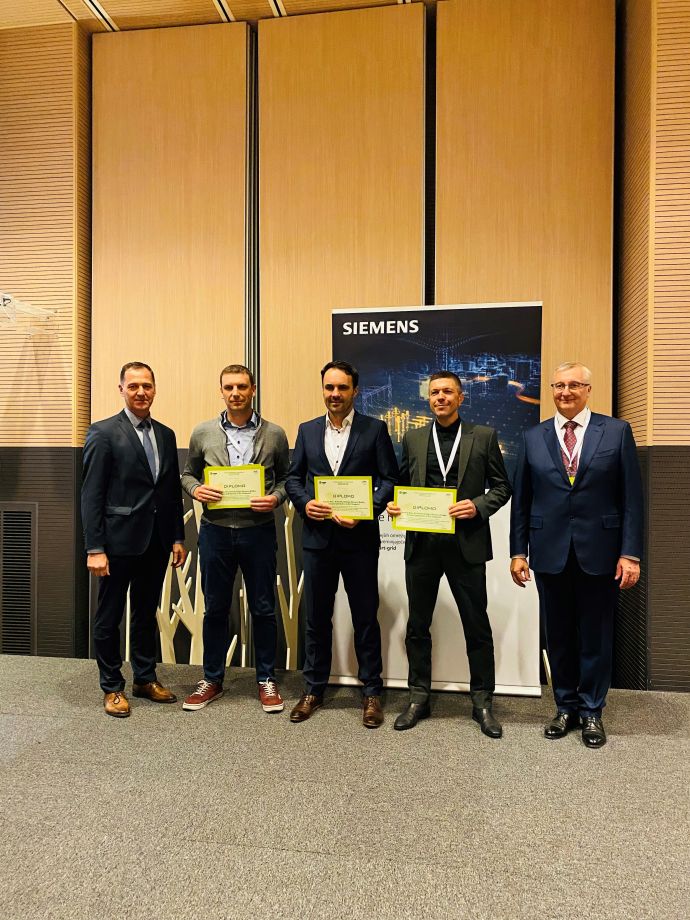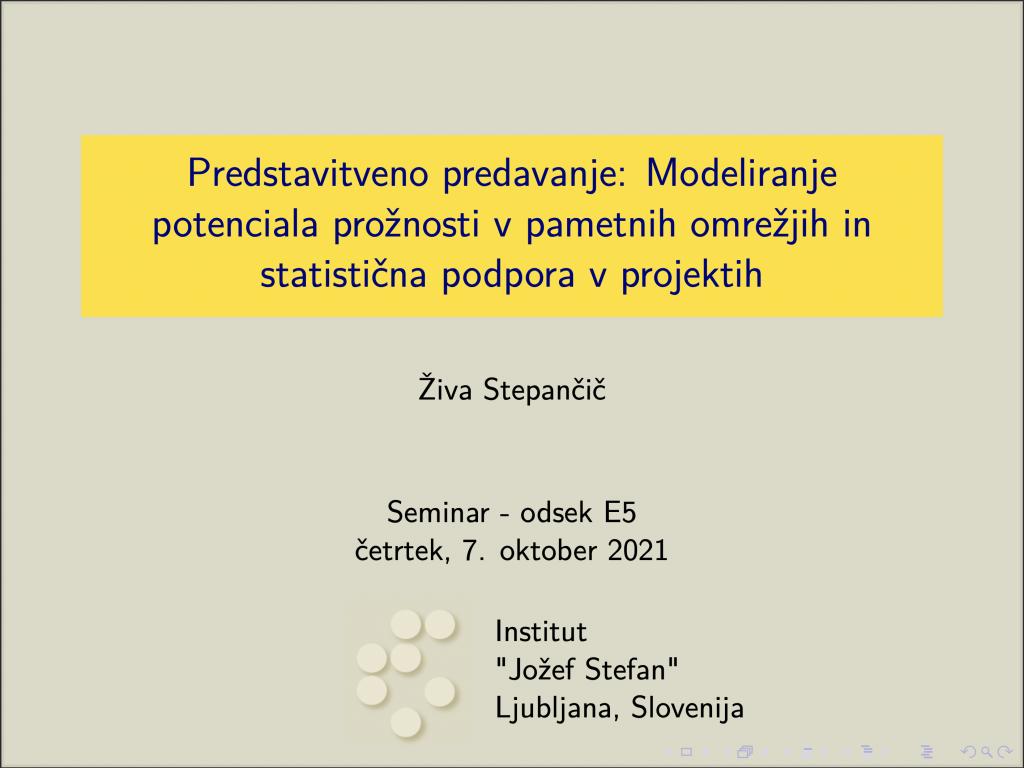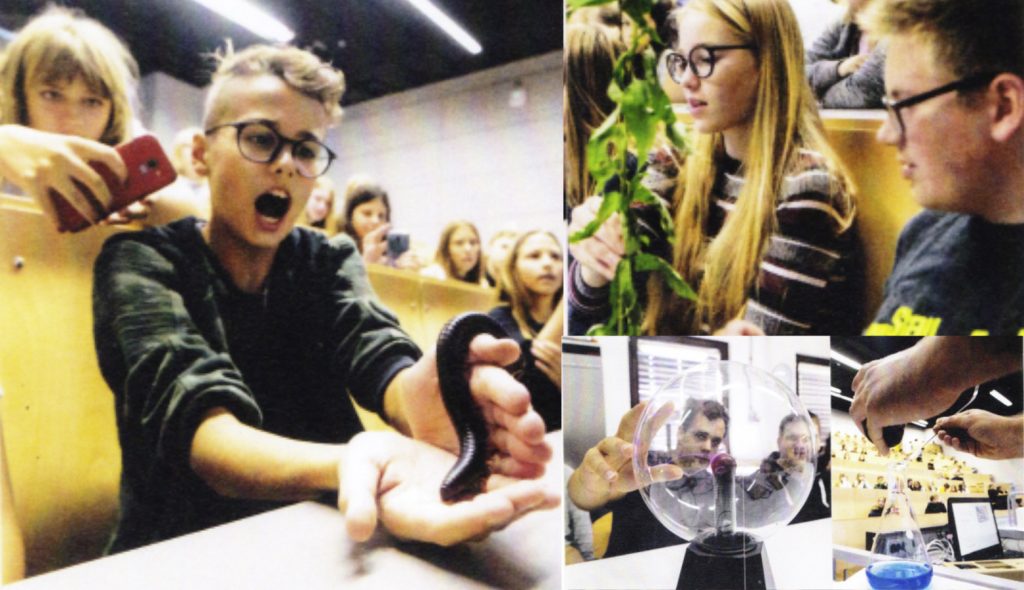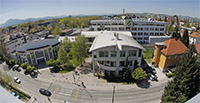15th Conference of Slovenian Electric Power Engineers CIGRE CIRED
Dušan Gabrijelčič and Živa Stepančič presented a paper titled “Projekt UPORABLJAJ PAMETNO” (co-authors: Anton Kos, Maja Ivančič, Kristijan Koželj, Leon Maruša, Miran Rošer, Andrej Krpič, Arso Savanović, Boštjan Turinek, Miha Smolnikar, in Gordana Stojnšek Žnidarec) at the 15th Conference of Slovenian Electric Power Engineers CIGRE CIRED, in Laško, 19. – 21. October 2021. We presented the pre-liminary results of the UPORABLJAJ PAMETNO project, where we estimate the flexibility potential of household consumers and define the representative groups of electric grid users based on their consumption profile.
We also received the best paper award for the paper “Predstavitev rezultatov pilotnega vključevanja odjemalcev v programe prilagajanja odjema z uporabo dinamičnega tarifiranja v mednarodnem projektu Flex4Grid”, 2019 (Results of the dynamic tariff scheme pilot application in the context of European project Flex4Grid). In the name of all authors: Anton Kos, Kristijan Koželj, Damjan Bobek, Živa Stepančič in Dušan Gabrijelčič, the award was accepted by our project partners from Elektro Celje d.d. (A. Kos, K. Koželj and D. Bobek).






